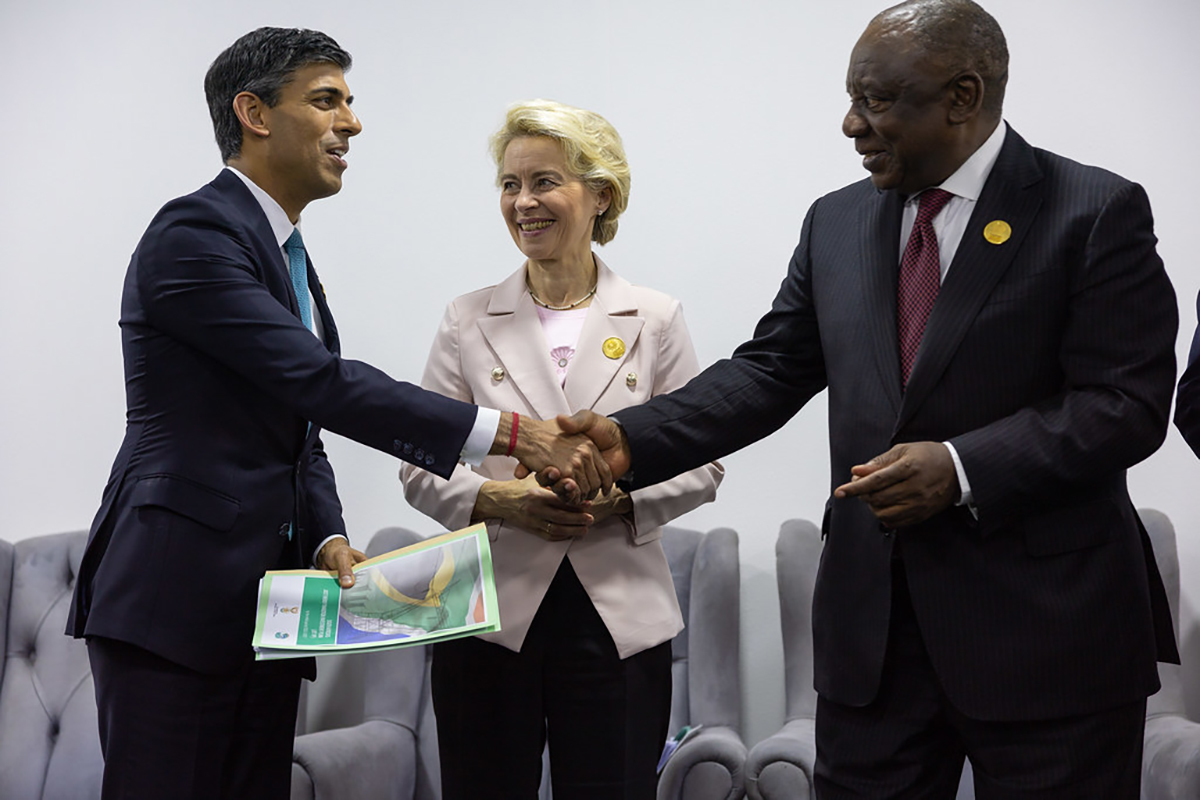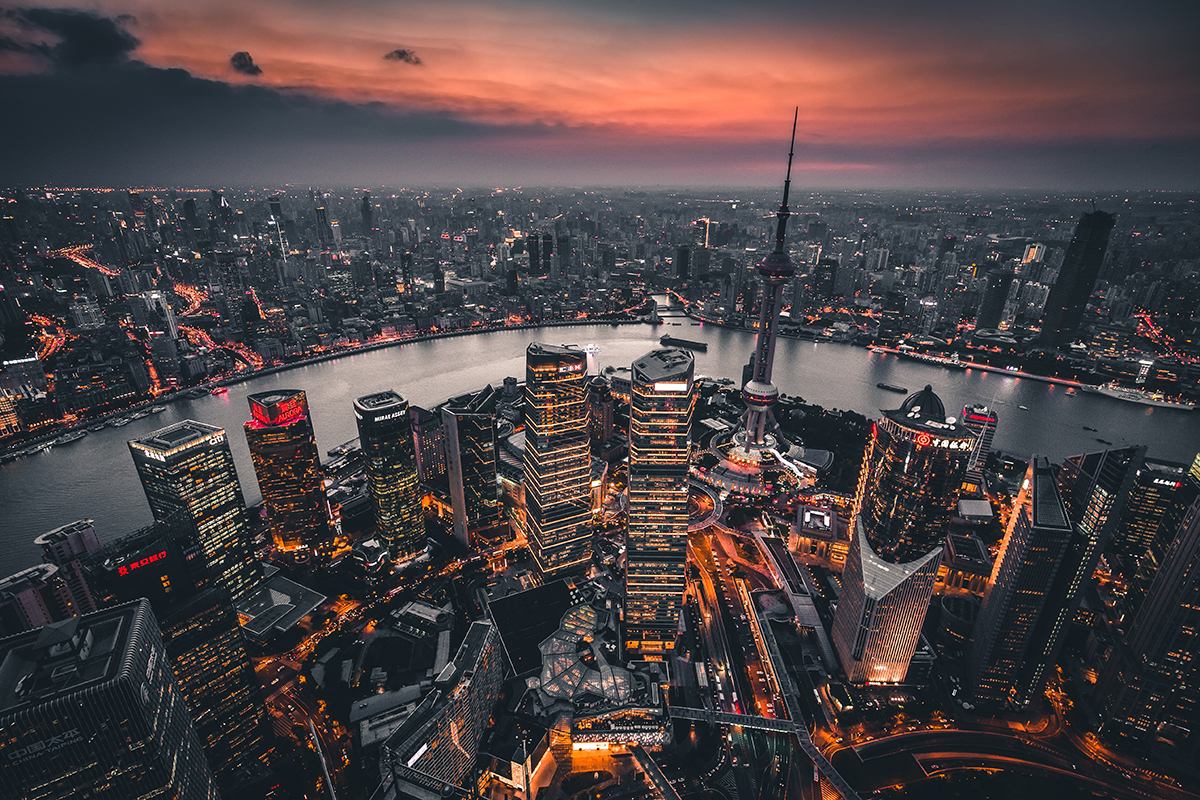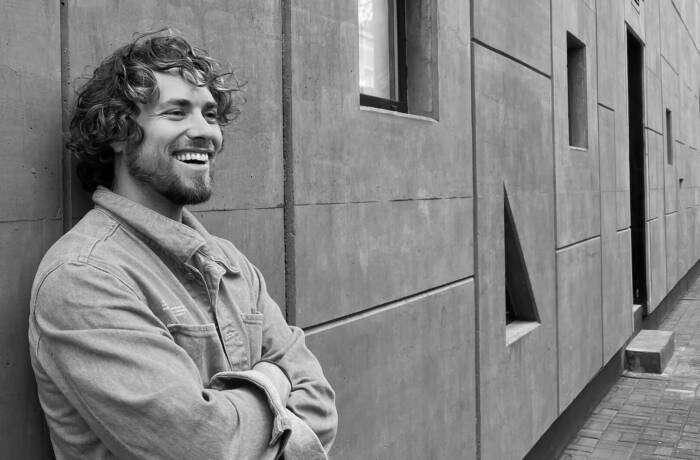
Small Pacific island nations like Tuvalu are at most risk of rising sea levels due to climate change; COP27 last year created a Loss and Damage Fund to alleviate their plight, but no funding has yet been forthcoming
There is a major issue with meeting our sustainability goals: the financial and structural support is, in many cases, just not there. Deutsche Bank’s Markus Müller explains to Darius Sanai what needs to happen to close the gap
LUX: What is the sustainable financing gap and what is the biggest problem we face for bridging it?
Markus Müller: It is usually defined as the difference between the cost of meeting United Nations Sustainable Development goals (SDGs) and the amount of investment actually being delivered. Big numbers are common here but we need to put them in perspective – the latest OECD estimated the annual financing gap is 3.9 trillion USD, but this is much smaller than global GDP of around 100 trillion USD. The biggest problem isn’t the size of the gap, but making sure that investment projects and systems are viable. Bringing down borrowing costs and making sure there’s a level playing field for investments are big parts of this.
Follow LUX on Instagram: luxthemagazine
LUX: Financing sustainable development should be a priority. But is short-term thinking still making it difficult?
MM: I wouldn’t blame the sustainable finance gap simply on short-term thinking. I think most people are rightly uncomfortable with how close we are to the planetary boundaries, and this is spurring action: we aren’t just leaving this to future generations. Fixing the finance gap now needs innovation, an ability to break free of current ways of thinking and a clear view of where we want to be. Returns and cost of capital remain key issues.

Houston, Texas is attracting new technological investment due to incentives created by the US Inflation Reduction Act, which is in effect a green subsidy
LUX: You have observed that our international social infrastructure for dealing with global collaborative action (the UN, and the economic institutions arising from Bretton Woods) are from another era. Do they need to be updated?
MM: Existing international institutions provide good framework to support transformation. They can cooperate in new ways with other bodies if necessary – note President Macron’s Global Financial Pact summit earlier this year. This is a matter of evolution, not replacement. Look at the discussions, for example, around how to repurpose IMF Special Drawing Rights (SDR, invented back in 1969) to support biodiversity and other initiatives.
LUX: The climate crisis – or triple planetary crisis – requires global nations’ collaboration on a probably unprecedented scale. But is such collaboration now more difficult in our increasingly multipolar world?
MM: Collaboration is fragile by nature, but it is still possible in a multipolar world. We start from a base point where the world’s resources – financial, material, natural – are unevenly distributed. Developing economies have more physical resources (for example, metal and minerals deposits) so it may make sense for them to collaborate. But if developed economies want to participate in these discussions, they must deliver more real support. This is often lacking: for example, there have been no inflows into the Loss and Damage Fund agreed on at last year’s COP.

At COP27 in Egypt in 2022, world leaders agreed to take tangible steps towards alleviating the climate crisis, but it remains to be seen whether they will be executed
LUX: Are you optimistic that the US, EU, Russia and China (for example) will agree on and enact workable policy solutions to counter the climate crisis? What would be significant markers of progress?
MM: Yes, I am. We have seen one important, recent example of this: major technology disputes between the U.S. and China did not stop the two sides meeting for climate talks. This shows that environmental issues do not have to become a destructive bargaining chip in broader trade or investment disputes, although we should not ignore the fact that environmental operating standards do have an impact on competitiveness and thus trade tensions. For me, the key marker of progress is continued discussion and agreement to stay within overall multilateral environmental policy targets.
LUX: If we are indeed entering a more unstable era (in terms of global climate and related issues like biodiversity), do the fundamentals of policy making need to change in order to accommodate constant change?
MM: I think this is a matter of learning how to overcome unforeseen challenges, rather than simply accepting instability. As our understanding of environmental issues and how to tackle them gets better, policy will change. The fundamental shift may involve us stopping seeing policymaking as proceeding along an inflexible straight line. We need to be more flexible and accept that policy may zig-zag. Policymakers’ ability to adopt to changing knowledge to find optimum solutions should be seen as an indication of strength, not weakness.

China, one of the world’s biggest sources of greenhouse gas emissions, has recently cleaned up its urban pollution and has agreed to restart formal climate change talks with the U.S. as of November 2023
LUX: Past successes like the Montreal Protocol were one-time events. How can we ensure more sustained policy progress?
MM: I don’t think we should think of policy advances as one-time “successes”. In reality, we often don’t know the real impact of policy agreements for many years. Some agreements that are hailed as successes at the time – for example, the Aichi goals of 2011 – have subsequently proved insufficient to meet the challenge at hand. The importance of agreements is really that they drive us, one uneven step at a time, towards better environmental outcomes.
Read more: Marküs Muller on the economy and biodiversity
LUX: How important are subsidy and protection programmes for transition technologies, and can they be harmful?
MM: It’s important to distinguish between different sorts of policy support. There are good and long-standing arguments for the support of “infant industries”, in the economics jargon, but we have to be careful that this does not slide into protectionism as these industries mature. U.S. support via the Inflation Reduction Act (IRA) is giving us a good preview of transition policy support, and what really determines where new industries locate and thrive. (Consider why Houston is attracting new technologies and Miami is losing out, for example.) Ultimately, it’s all about kickstarting specific industries that will really work.
Markus Müller is Chief Investment Officer of ESG & Global Head of Chief Investment Office at Deutsche Bank’s Private Bank
Find out more: deutschewealth.com/esg








